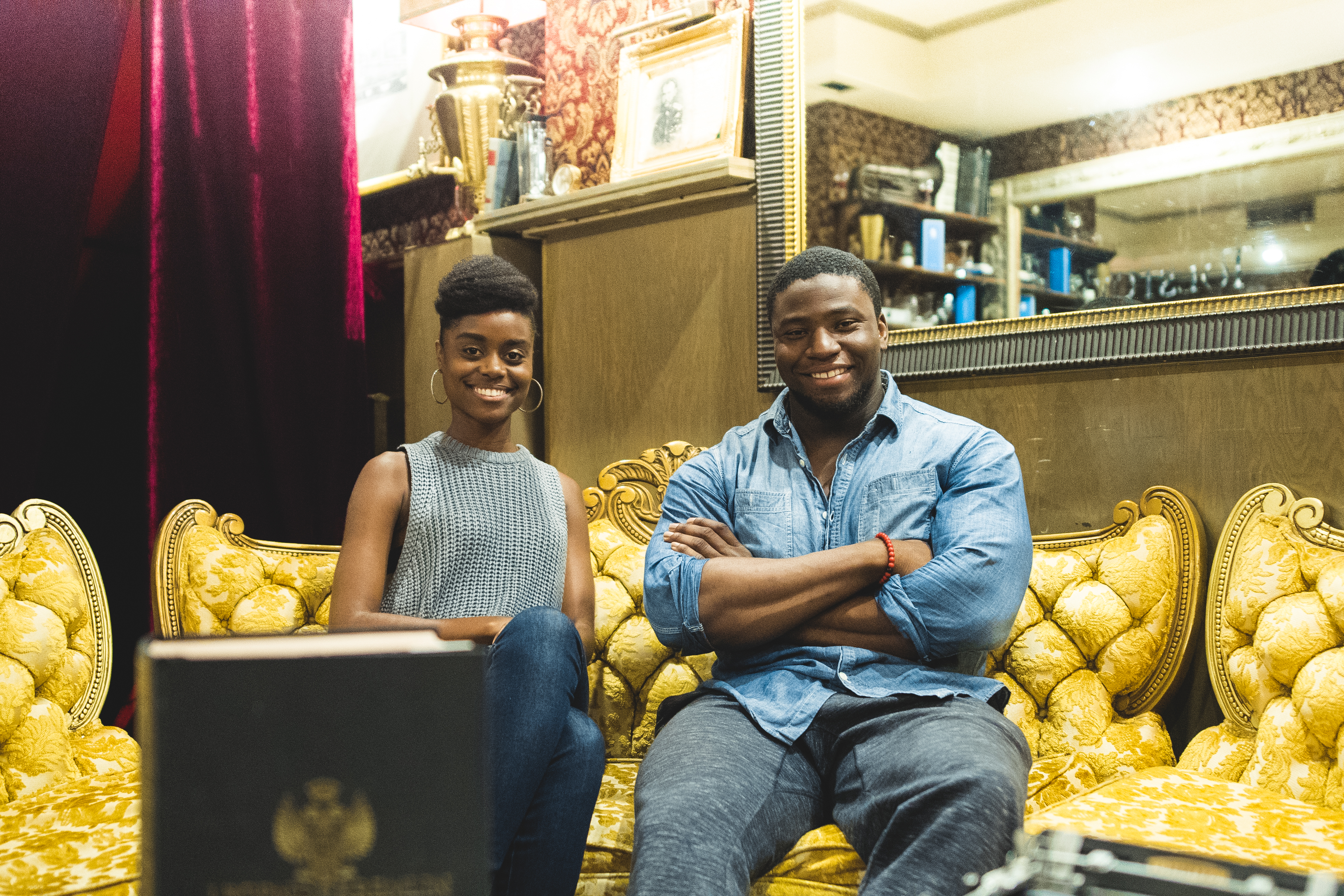

Features
Exclusive: Denée Benton and Okieriete Onaodowan Talk Great Comet, Diversity & Artivism
Published
9 years agoon
Two Black actors leading a show that encourages inclusive casting and ignores gender norms set in Moscow in 1812. How “non-traditional.” But is it really?
Benton, who plays Natasha with whimsical naïveté, has the role of her dreams in her Broadway debut further inspired by her never having to deny her Blackness to do it.
“I remember having my hair texture was very important to [the creative team] and important to me. I was like, ‘I couldn’t let this moment pass by for a Black woman in all of her Blackness being Natasha.’ I thought it was just very important but the fact that there’s a creative team that shares the consciousness and none of them are people of color, it’s just… it was incredible to me.”
This same consciousness of the creative team was also very key throughout her audition process. Having auditioned previously for director Rachel Chavin and writer Dave Malloy, any initial hesitations about going out for Great Comet dissipated once she got her hands on the material and fell in love with the music and her character, adding “there was synergy and everything was right and that’s when I knew it was mine.”
Denée’s debut performance earned the actress a Theatre World Award and her first Tony Award nomination for Best Performance by an Actress in a Leading Role in a Musical earlier this month.
On the other hand, Onaodowan was quite busy playing the tailor-turned-spy Hercules Mulligan and soft-spoken James Madison in Broadway’s hit Hamilton when he received the call. “Rachel called on my second to last show of Hamilton. We were talking about the Ghostlight Project and she told me, ‘Actually I want you to be Pierre.’
“I learned ‘Dust and Ashes’ and I played some for the producers and then I worked with a piano teacher. The main thing was to make sure I could play the piano.” Now in early stages of preparations, Onaodowan commits to getting the technicalities and nuances of Pierre out of the way before deep-diving into his story. We look forward to seeing “Oak” on stage again, but this time on 45th street, the same street declared “Broadway Black Street” during the 2015-2016 season where The Great Comet plays nightly.
“It’s just understanding. Broadway is in a weird spot because there’s only so many seats you can sell, and it’s a risk taking on something that may be culturally relevant or moving the needle along; but again, it’s business. It’s financially making your money back and making a profit.”
He adds the best part of the success from Hamilton isn’t its diversity, per say, but that Hamilton is “terribly profitable.” That “these people and this music, this style/genre of music is profitable so, hopefully, producers say ‘Hey I can make a dollar.’”
Similarly, Denée chimes in: “What I found is you have a lot of well-meaning creative teams who are liberal people, who have good hearts but haven’t necessarily done the research in what it means to break a system that was based on systematic racism.” That said, it will take creative teams like those of The Great Comet to step outside of the box, for there to ever be any true progress for actors of color.
Onaodowan is also aware it doesn’t solely fall on those who make the shows, but those who see the shows. “[Ticket-holders] buy tickets. If you see a show that is diverse, even if you’re not crazy about it, go out and support it because you’re saying ‘I support diverse theatre and there’s an avenue for this,’ it can be profitable.”
Still, both actors maintain hope for the future; hopefully, one that shines as bright as the light fixture in the finale of The Great Comet.
With the way social media has taken off, it allows some of our favorite stars to interact with fans about upcoming projects or simply enlighten them about issues that affect society, helping them stay optimistic and outspoken. It’s “artivism,” as the BAC calls it. Something both Benton and Onaodowan haven’t taken lightly. Benton, this past Black History Month, launched what she calls the “Black Princess Project” to highlight Black royalty that we otherwise wouldn’t have learned.
“That’s the only reason fame matters, because you have such a wide platform and, nowadays, if they won’t teach it in our history books, you can just post it and I like that. For me, it’s important. This would all start to feel meaningless if I couldn’t use [my platform] to change something or say something.”
As the son of Nigerian immigrants, Onaodowan has remained outspoken about immigration rights, giving the keynote address to a crowd of new citizens naturalized in New York City last September.
He also stresses the importance of artists using their voices to uplift communities and speak out about what matters. “I think artists do have a [civic] responsibility at some point. I always say as artists, you are responsible. If you have that platform you are responsible for what you put out there, and as much as you would love to just do your art, when you reach a certain level there’s [sic] certain things that come with your job.
“I don’t know how to write grants or run a non-for-profit or anything like that. But, in my lane, what I can do is use this platform of how many thousand people listen to me to try to put something positive out in my own personal way. It’s important to use your platform to say something because people listen.”
Okieriete “Oak” Onaodowan joins Denée Benton in Natasha, Pierre, and the Great Comet of 1812 on July 3rd.
For tickets, follow the Great Comet.
You may like
1 Comment
Leave a Reply
Cancel reply
This site uses Akismet to reduce spam. Learn how your comment data is processed.
Features
Photo Exclusive: Step into The Light with Broadway Black
Published
7 years agoon
February 21, 2019
Have you seen The Light by Loy A. Webb at MCC Theater? If you haven’t, then you need to and Broadway Black has got you. Join us on SUNDAY MARCH 3rd for the BWAYBLK Experience!
Use code BWAYBLACKMCC and pay $35 for any seat on Mar 3 at the 7:30 performance
Not every marriage proposal goes as planned. LOY A. WEBB’s THE LIGHT introduces us to RASHAD and GENESIS on what should be one of the happiest days of their lives, but their joy quickly unravels when ground-shifting accusations from the past resurface in this gripping two-character drama. Can their relationship survive the growing divide between them over who–and what–to believe?
Also, get into this amazing photo series of playwright Loy A. Webb & the cast of her play The Light. Photos by Curtis Brown were taken in the new elegantly designed and strategically welcoming Robert W. Wilson MCC theater space. Located in midtown New York on 52nd and 10th ave (511 W 52nd ST
New York, NY 10019)
On another tip, some really dope creatives will do a talkback after the Saturday matinee performance that you might be interested in attending. Make sure to RSVP.
Panelists include: Nissy Aya, Cristina Pitter, Alicia Rodis & Kavita Mehra
THIS WEEKEND SAT FEB 23rd
LOY A. WEBB’s THE LIGHT at MCC Theater delves deeply into one couples’ reckoning with an encounter with sexual violence that has left audiences asking: as a partner, a family member, a friend, how do we support sexual assault survivors? And what responsibility do artists have to create work that is trauma-informed? On SAT FEB 23 at 4:00 PM for an in-depth conversation about the power of allyship rooted in love and healing – in our lives and on our stages – in the face of trauma.
SAT FEB 23 at 4PM
THE ROBERT W. WILSON MCC THEATER SPACE
511 W52 ST
RSVP HERE.
Features
A Superhero On & Off The Stage, Camille A. Brown Brings ink
Published
7 years agoon
February 5, 2019
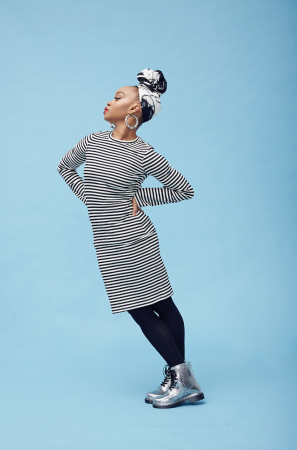
Camille A. Brown Photo by Whitney Browne
Camille A. Brown‘s dance company, Camille A. Brown & Dancers, tours nationally and internationally and will be presenting six performances featuring the debut of ink at The Joyce Theater NYC Feb 5-10th 2019.
Propelled by the live rhythms and sounds of traditional African and handmade instruments, Camille A. Brown’s ink celebrates the rituals, gestures, and traditions of the African diaspora. Highlighting themes of brotherhood, community, and resilience, the work seeks to reclaim African American narratives and is the final installment of Brown’s dance theater trilogy about identity.
In addition to her company works, Ms. Brown brings her passion for storytelling to her award-winning choreography for Broadway, Television, and Off-Broadway. Productions include Tony Award Winning Once On This Island, (Drama Desk, Outer Critics and Chita Rivera award nominations), Emmy Award Winning Jesus Christ Superstar Live on NBC, A Streetcar Named Desire, Choir Boy, the upcoming Magic Mike The Musical, PAL JOEY.
We had the chance to probe a little bit into the world of Camille A. Brown, and we’re grateful for the insight and wisdom with which she was able to bless us. Check out the interview below along with an excerpt from ink.
Broadway Black (BB): After forming the idea, what was the process of building ink?
Camille A. Brown (CAB): After the creative process for BLACK GIRL: Linguistic Play, I held a desire to dig even deeper and tell more stories of ritual, gestural vocabulary, and traditions of the African Diaspora. I was immediately drawn to two albums that had a significant impact on me when I was growing up. The Miseducation of Lauryn Hill by Lauryn Hill, and Like Water for Chocolate by Common. I tasked myself with creating a movement language that embodied the same raw authenticity, and vulnerability that fuels those lyrics and music.
As I began to develop the concept for ink, I wanted the dancers to represent superheroes. I couldn’t figure out why I had the urge to play with this idea until I read Question Bridge: Black Males in America. One of the men interviewed said, “I see Black people as comic book heroes because they always keep rising.” That was it! It is about showing that in our basic survival, and natural attributes we have superhuman powers. Powers to shift, overcome, transform, and persevere even within an often hostile environment. The seven sections of ink represent super powers of spirituality, history and heritage, the celebration of the Black female body, Black love, brotherhood, exhaustion, and community.
The process involves a deep collaboration with the dancers and my direction is guided by their choice making.
The space is very organic and fueled by research. My dancers, musicians, dramaturgs, and I are in constant dialogue throughout the process about the work and how it’s progressing. We don’t move forward unless we’re all on the same page.
We are building the work together. As a disclaimer, I let everyone know the process will be exceptionally tedious. Like a fine comb, I go through each beat, gage the temperature of storylines, and make sure the movement and music are always in conversation (whether aligned or in contrast).
BB: What made you want to start your own dance company and how have you sustained?
CAB: I found my love of choreography in college because I struggled with body image, and found that creating my own voice was a safe and empowering space. After graduating, I danced with Ronald K. Brown/Evidence for 5 seasons and during my second year with The Company, a friend from college (Amy Page) sent me a flyer for the Hubbard Street 2 competition which picks 3 choreographers to create work on the Company. I was chosen! That gave me the encouragement to pursue choreography. My first idea was to take an alias like female writers used to do because even at 22, I knew the playing field was not leveled and women (particularly black women) did not get as much exposure as male choreographers. Dance is revealing and vulnerable so taking an alias wasn’t a realistic option. People would have to see me as I am, but I also needed the confidence to withstand the obstacles. Not only that, having a company seemed daunting.
Ron wore so many hats. He was the director, choreographer, teacher, and also took on administrative duties. He never got a break. I wasn’t confident I could handle all of the duties.
I set work on other companies, but soon realized it wasn’t for me. 1-4 weeks working with a Company wasn’t enough time for me to really hone my skills, find my voice, and discover my personal creative process. I desired a more intimate relationship and space with my dancers and collaborators. I had my first show at Joyce SoHo in 2006, and committed to having a company in 2010.
What sustains CABD is my team. I have a company agent (Pamela Green), Managing Director (Indira Goodwine), Company Manager (Michelle Fletcher), and a production team who holds things down.
In the beginning, I was doing ALL the jobs! As time went on, my team slowly formed. It’s really about patience and perseverance. Nothing happened over night and everything is a progression.
BB: How have you had to be a superhero in your own life personally and professionally?
CAB:
Personally
Last year, I had a life-threatening experience. My appendix ruptured on tour. Appendicitis is when they remove your appendix before it ruptures, but mine actually did and the fluid was in my system for at least a week. I survived the “fatal” stage- which the doctors told me isn’t common. This started a very long year and a half which included 4 hospital stints and two surgeries (my second one was in April). This all happened during Once on This Island (I was in the hospital the first week of rehearsal and had my first surgery during tech), Jesus Christ Superstar Live, and my Company touring. I had to access my “superpowers” and push through, but thankfully I had my team and community to help me.
I’m going to be writing about the entire ordeal because it was such an integral part of my life. People see the “success”, but if they only knew the hardships I had to overcome to get to the other side.
Professionally
Being a Black female Choreographer and Director is hard. People ask me to do I feel like I’ve arrived. Absolutely not. I’m still Black and a woman- two underrepresented groups- particularly in theater. The playing field is still not leveled and I’m clear I have to work twice as hard.
I’ve had to build up strength and confidence. It is an ongoing process of gathering those superpowers. In many spaces, I’m sometimes the only woman (I was the only woman on the creative team for Jesus Christ Superstar Live), and the only black person in some rooms.
Recently two black girls at different events asked me the same exact question: How do you navigate spaces where you’re the only one.
It’s quite easy to feel intimated and shrink yourself. I know I have done that in the past. Now, I’ve found if I think about the black women before me in similar spaces, black women who are currently in similar spaces, and the next generation of black women coming after me, it makes me more confident. When it’s not just about you, it becomes a responsibility.
And even when I don’t feel like I have any superpowers, this happens…
and it refuels and encourages me to keep going. Someone is always watching.

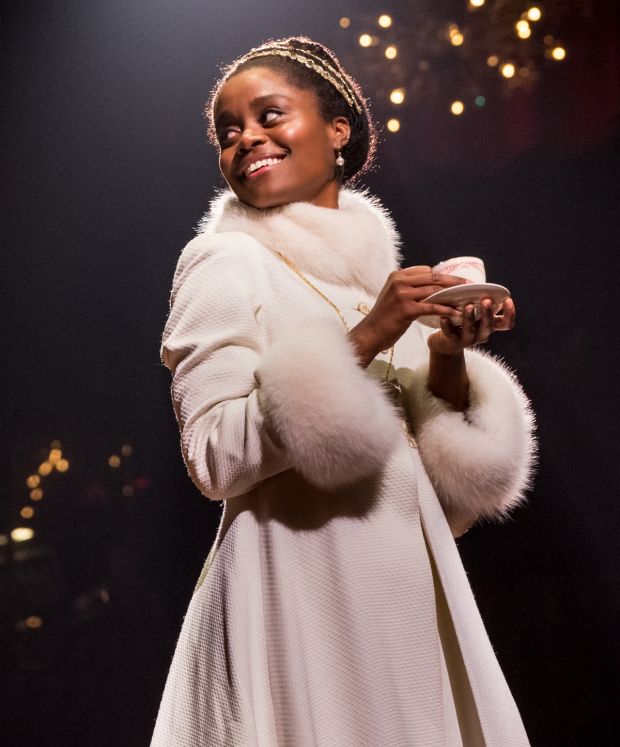

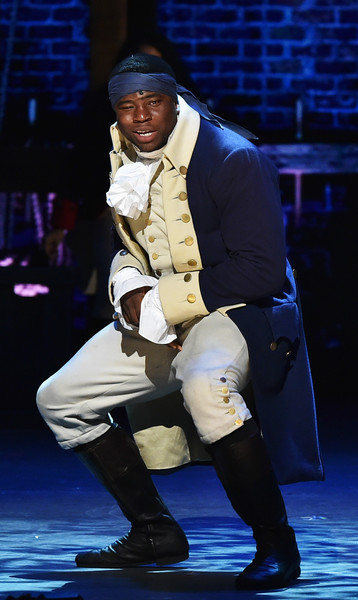
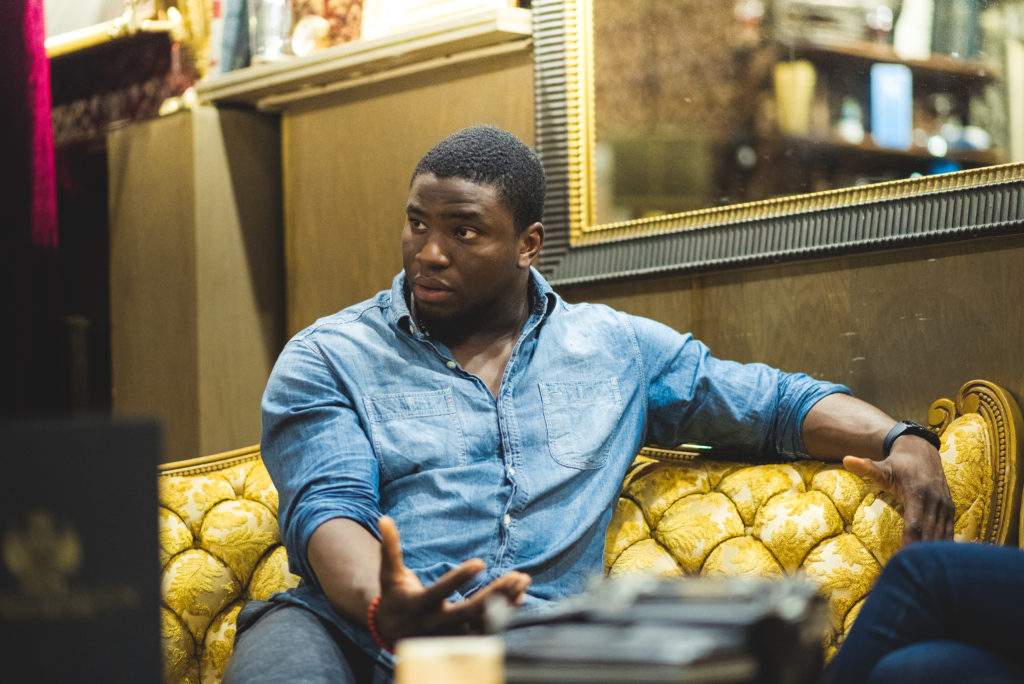


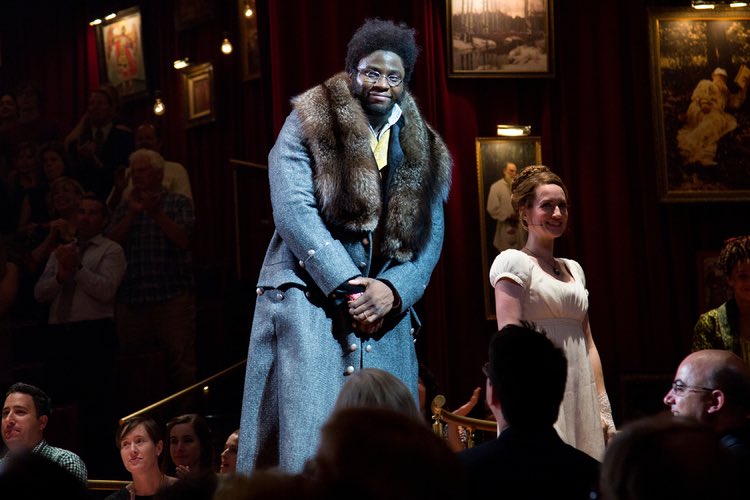

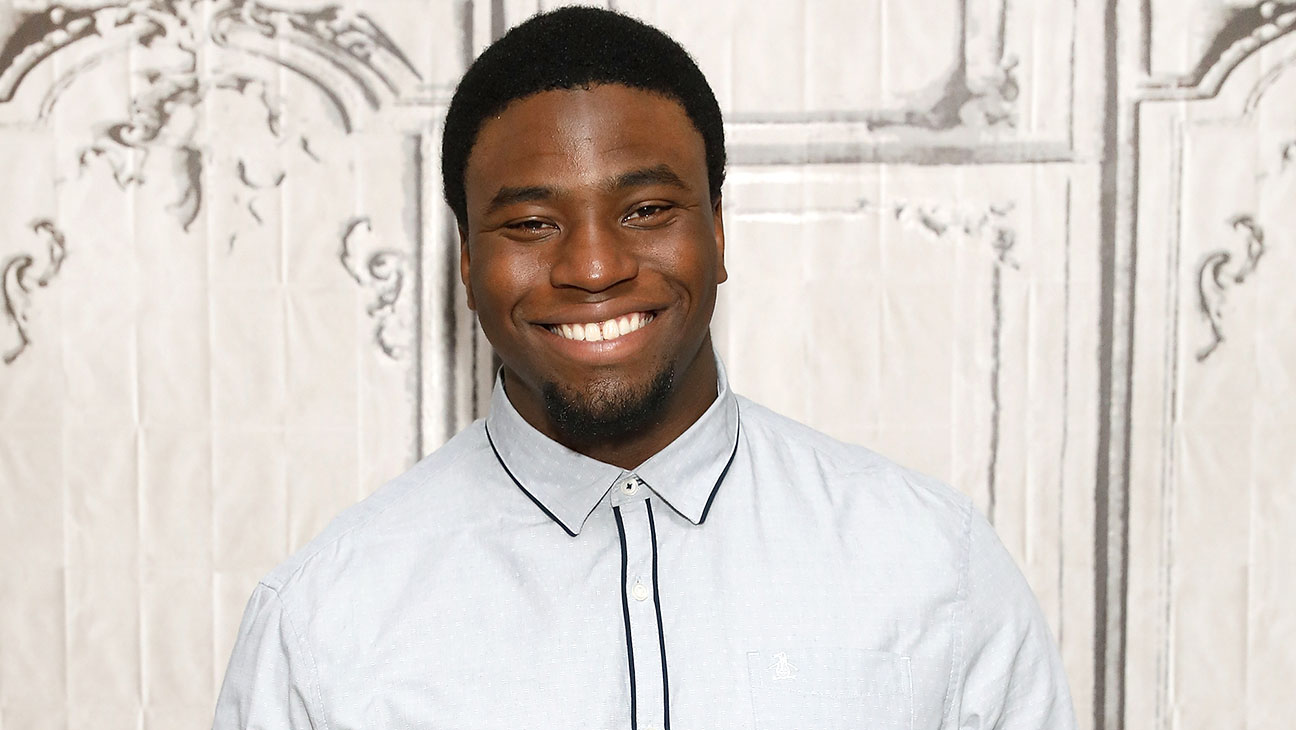






Pingback: Okieriete “Oak” Onaodowan Departs The Great Comet; Mandy Patinkin Will Replace